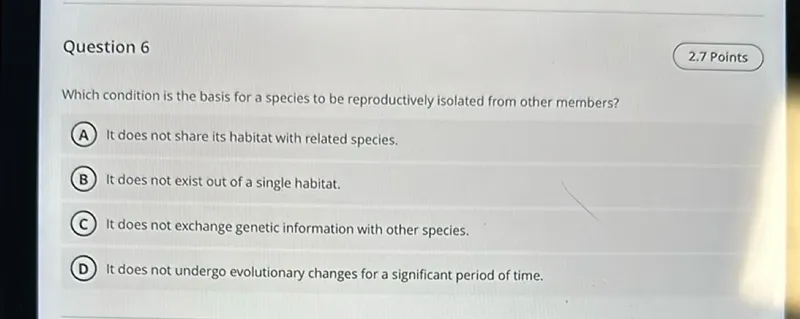Questions: Question 6 2.7 Points Which condition is the basis for a species to be reproductively isolated from other members? (A) It does not share its habitat with related species. (B) It does not exist out of a single habitat. C) It does not exchange genetic information with other species. (D) It does not undergo evolutionary changes for a significant period of time.

Transcript text: Question 6
2.7 Points
Which condition is the basis for a species to be reproductively isolated from other members?
(A) It does not share its habitat with related species.
(B) It does not exist out of a single habitat.
C) It does not exchange genetic information with other species.
(D) It does not undergo evolutionary changes for a significant period of time.





